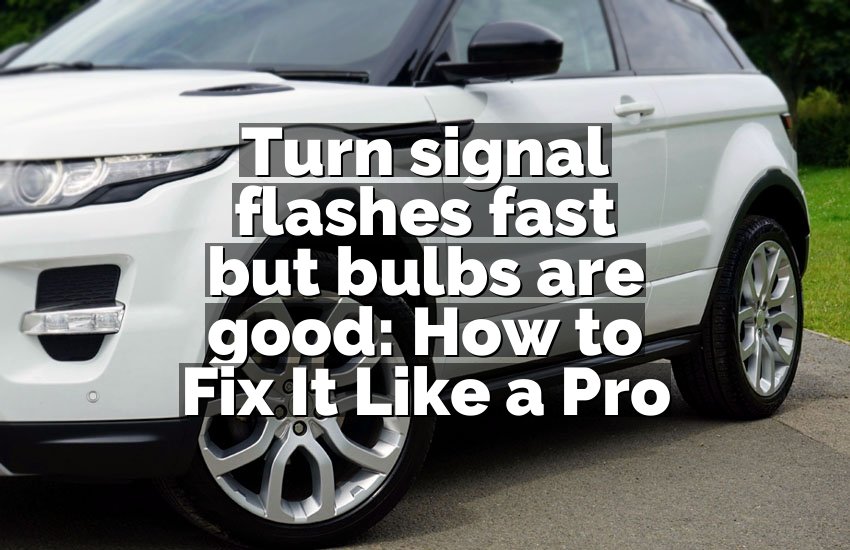Car shutting off when stopped or slowing down can be due to issues with the fuel system or a malfunctioning sensor. To diagnose and fix the problem, it is essential to check the fuel pump, fuel filter, throttle position sensor, or idle control valve.
Regular maintenance and prompt repairs can help prevent this issue and ensure smooth driving experience. Addressing these potential causes promptly will help avoid further damage and potential safety risks on the road. Knowing the common culprits behind a car stalling at low speeds can save you time, money, and hassle in the long run.
Proper troubleshooting and timely repairs are key to keeping your vehicle running smoothly.
Credit: www.quora.com
Common Causes
There are various common causes for a car shutting off when stopped or slowing down. These issues might be attributed to a malfunctioning fuel pump, a faulty ignition system, or a clogged air filter. You can remedy these problems by performing regular maintenance or seeking professional assistance.
Car shutting off unexpectedly when stopped or slowing down can be a frustrating and concerning issue for any driver. To diagnose and fix the problem, it is important to understand the common causes behind this issue. Here are three potential culprits to consider:Fuel System Issues
A malfunctioning fuel system can cause your car to shut off when idling or decelerating. A clogged fuel filter, for example, can disrupt the fuel flow to the engine, resulting in stalling. Similarly, a faulty fuel pump may fail to deliver an adequate amount of fuel, causing your vehicle to shut down abruptly.
To tackle these fuel system issues, it is advisable to check and replace the fuel filter regularly as part of your car’s maintenance routine. Addressing any fuel pump problems promptly is also crucial in preventing potential breakdowns.
Electrical Problems
Electrical glitches can also contribute to your car shutting off unexpectedly. Faulty ignition switches, loose wiring, or a failing alternator are a few possible electrical culprits that can disrupt the smooth operation of your vehicle.
To address electrical issues, it is recommended to have a qualified mechanic inspect your car’s ignition system, wiring, and alternator. Detecting and resolving any faults in these components can help prevent your car from stalling when coming to a stop or slowing down.
Engine Overheating
Engine overheating can lead to various complications, including stalling. When your engine becomes too hot, it can cause the ignition system to fail, resulting in the engine shutting off unexpectedly. Common causes of engine overheating include low coolant levels, a malfunctioning thermostat, or a faulty radiator.
To prevent overheating, make sure to routinely check your coolant levels and address any leaks promptly. Regular maintenance of the thermostat and radiator can also help keep your engine running at optimal temperature, reducing the risk of stalling.
By understanding these common causes of a car shutting off when stopped or slowing down, you can take the necessary steps to diagnose and fix the issue. If the problem persists, it is always recommended to seek professional assistance to ensure the safety and reliability of your vehicle.
Credit: carfromjapan.com
Fixes
If your car shuts off when stopped or slowing down, it can be a frustrating issue to deal with. Here are some essential fixes to address this problem.
Check Fuel Filter
Checking the fuel filter is a critical step in resolving this issue. A clogged or dirty fuel filter can restrict fuel flow to the engine, causing it to stall when idling or slowing down.
Replace Ignition Coils
Replacing faulty ignition coils can improve engine performance and prevent stalling. Ignition coils are responsible for producing the high voltage necessary for the spark plugs to ignite the air-fuel mixture in the engine cylinders.
Inspect Cooling System
Inspecting the cooling system is important as overheating can lead to engine stalling. Coolant levels, radiator condition, and thermostat operation should be checked to ensure proper engine cooling.
Idle Air Control Valve
The Idle Air Control Valve (IAC Valve) is a crucial component in a vehicle’s engine system. It helps to regulate the amount of air flowing into the engine at idle or low speeds.
What Is An Idle Air Control Valve?
The Idle Air Control Valve (IAC Valve) is an electronic component that manages the engine’s idle speed.
How It Works
The Idle Air Control Valve (IAC Valve) adjusts the amount of air entering the engine to maintain a steady idle speed.
Symptoms Of A Faulty Iac Valve
- Rough idling
- Stalling when slowing down or coming to a stop
- Inconsistent idle speed
- Poor fuel efficiency
- Check engine light may illuminate
Cleaning The Throttle Body
When your car shuts off when stopping or slowing down, one possible culprit could be a dirty throttle body. The throttle body controls the amount of air that enters the engine, affecting the vehicle’s performance. Regular maintenance, such as cleaning the throttle body, can help improve your car’s idle and overall performance.
Signs Of A Dirty Throttle Body
- Rough idle
- Stalling
- Decreased fuel efficiency
- Check engine light is on
Steps To Clean The Throttle Body
- Locate the throttle body
- Remove air intake hose
- Spray throttle body cleaner
- Use a soft brush to scrub
- Wipe clean with a lint-free cloth
- Reassemble the air intake hose
- Start the engine and test drive
Sensor Failures
When your car shuts off unexpectedly, it can be frustrating and potentially dangerous. One common reason for this issue is sensor failures. Sensors in your car play a crucial role in monitoring various engine and vehicle functions, and when they fail, it can lead to stalling or shutting off while the car is stopped or slowing down. Identifying and addressing sensor failures can help you resolve this problem and ensure your vehicle runs smoothly.
Mass Airflow Sensor Issues
A mass airflow sensor measures the amount of air entering the engine and sends that data to the engine control unit. If this sensor fails, it can lead to incorrect air-fuel mixture, causing the engine to stall when the car is idle or slowing down. Common signs of a faulty mass airflow sensor include rough idling, hesitation, and stalling. Replacing a malfunctioning mass airflow sensor can restore proper engine operation.
Throttle Position Sensor Problems
The throttle position sensor monitors the position of the throttle valve, helping the engine control unit adjust the fuel and air mixture for optimal performance. When the throttle position sensor malfunctions, it can cause the engine to shut off when the car slows down or comes to a stop. Symptoms of a faulty throttle position sensor include stalling, hesitant acceleration, and sudden jerks while driving. Addressing throttle position sensor issues may involve recalibrating or replacing the sensor to ensure proper functionality.

Credit: www.linkedin.com
Vacuum Leaks
Vacuum leaks in a car can cause it to shut off when stopped or slowing down. These leaks can disrupt the air-fuel mixture, leading to engine stalling. Fixing vacuum leaks often involves locating and repairing damaged or disconnected hoses, gaskets, or intake manifold.
Regular maintenance and inspections can help prevent these issues.
Detecting Vacuum Leaks
Vacuum leaks can wreak havoc on your car’s performance, causing it to shut off when you’re stopped or slowing down. Detecting these elusive leaks may require some patience, but it’s an essential step in resolving the issue.
Here are a few methods to help you identify vacuum leaks:
- Visual Inspection: Start by checking the vacuum hoses and connections for any signs of wear, cracks, or disconnections. Pay close attention to areas where hoses meet fittings or connect to the engine.
- Listening for Hissing Sounds: With the engine running, listen carefully for any hissing or whistling noises. These can indicate the presence of a vacuum leak.
- Using a Smoke Tester: A smoke tester can help pinpoint vacuum leaks by injecting a harmless smoke into the vacuum system. If there’s a leak, you’ll see smoke coming out from the damaged area.
- Using a Propane Torch: Although this method requires caution, using a propane torch can help you identify vacuum leaks. With the engine running, carefully move the torch along the vacuum hoses and connections. If there’s a leak, the engine will react to the propane, causing a change in RPM.
Repairing Vacuum Leaks
Once you’ve successfully detected a vacuum leak, it’s time to address the issue and get your car running smoothly again. Here are a few steps to repair vacuum leaks:
- Identify the Leak: Use the detection methods mentioned earlier to pinpoint the exact location of the leak. It could be a cracked hose, a loose or faulty connection, or a damaged intake manifold gasket.
- Replace Damaged Hose or Fitting: If you find a cracked or worn-out hose, replace it with a new one. Similarly, if a fitting is loose or faulty, tighten or replace it.
- Repair or Replace Intake Manifold Gasket: If the intake manifold gasket is the culprit, you may need to remove the intake manifold to access and replace the gasket. This task may require professional assistance.
- Ensure Proper Connection: After making the necessary repairs or replacements, double-check that all connections are secure and properly tightened.
- Test for Leaks: Once you’ve completed the repairs, it’s crucial to test for any remaining leaks. Use a smoke tester or propane torch, as mentioned earlier, to verify that there are no additional leaks.
By detecting and repairing vacuum leaks in your vehicle, you can prevent the frustrating issue of your car shutting off when stopped or slowing down. It’s essential to address vacuum leaks promptly to ensure optimal performance and prolong the lifespan of your car’s engine.
Transmission Problems
A car shutting off when stopped or slowing down can be a frustrating experience. One of the potential causes of this issue is transmission problems. The transmission is a crucial component of your car, responsible for transferring power from the engine to the wheels. If there are problems with the transmission, it can lead to the engine shutting off unexpectedly. In this section, we will discuss two common transmission problems that may cause your car to shut off – low transmission fluid and torque converter issues. Let’s dive into each of these problems and explore their causes and fixes.
Low Transmission Fluid
One possible reason for your car shutting off when stopped or slowing down is low transmission fluid. The transmission fluid lubricates the moving parts within the transmission and helps to regulate its temperature. When the fluid level is low, it can lead to poor performance and even failure of the transmission system.
To check the transmission fluid level, follow these simple steps:
- Locate the transmission fluid dipstick in your vehicle. It is typically labeled and can be found near the engine.
- Make sure the car is parked on level ground and the engine is running.
- Slowly pull out the dipstick and wipe it clean with a rag or paper towel.
- Re-insert the dipstick fully, then pull it out again to get an accurate reading.
- Check the fluid level indicated on the dipstick. If it is below the recommended level, you will need to add more fluid.
If you find that the transmission fluid is low, you can top it up following these steps:
- Refer to your vehicle’s owner manual to find out the type of transmission fluid required.
- Locate the transmission fluid fill cap, usually located on top of the transmission.
- Using a funnel, slowly pour the recommended transmission fluid into the fill cap.
- Check the fluid level again using the dipstick, ensuring it is within the appropriate range.
- Repeat the process as necessary until the fluid level is at the recommended level.
Torque Converter Issues
Another potential cause of your car shutting off when stopped or slowing down is torque converter issues. The torque converter is responsible for transferring power from the engine to the transmission. If it malfunctions, it can cause the engine to shut off unexpectedly.
There are several common torque converter issues that may be leading to this problem:
- Worn out or damaged torque converter: Over time, the torque converter can wear out or become damaged, leading to inefficient power transfer and the engine shutting off.
- Locked-up torque converter: A locked-up torque converter can prevent the engine from idling properly, causing it to shut off when the car is at a stop or slowing down.
- Faulty torque converter clutch: The torque converter clutch is responsible for engaging and disengaging the connection between the engine and transmission. If it malfunctions, it can cause the engine to shut off unexpectedly.
If you suspect torque converter issues, it is recommended to have your vehicle inspected by a qualified mechanic. They will be able to diagnose the specific problem and recommend the appropriate fix. Depending on the issue, repairs may involve replacing the torque converter or repairing the clutch.
Professional Diagnosis
When it comes to addressing issues with your car shutting off when stopped or slowing down, seeking a professional diagnosis is essential. An experienced technician can accurately diagnose the underlying causes and provide effective solutions, ensuring the safety and performance of your vehicle.
When To Seek Professional Help
Knowing when to seek professional help is crucial to prevent further damage to your vehicle. If your car continues to shut off when stopped or slowing down despite basic troubleshooting, it’s time to consult a professional mechanic. Persistent issues may indicate more complex mechanical or electrical problems that require professional attention.
Choosing A Reliable Mechanic
When choosing a reliable mechanic for a professional diagnosis, consider important factors such as their experience, certifications, and customer reviews. Opt for a reputable auto service center or certified technician who has a proven track record of accurately diagnosing and effectively solving car issues.
Conclusion
Resolving issues with your car shutting off when stopped or slowing down is essential for a smooth driving experience. By identifying the specific causes and applying the appropriate fixes outlined you can ensure your vehicle functions optimally. Don’t hesitate to seek professional assistance if necessary to keep your car in top condition.


